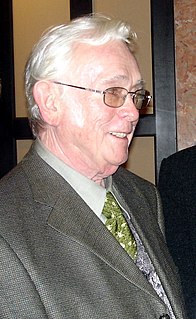A Quote by Confucius
You cannot open a book without learning something.
Related Quotes
Love of goodness without love of learning degenerates into simple-mindedness. Love of knowledge without love of learning degenerates into utter lack of principle. Love of faithfulness without love of learning degenerates into injurious disregard of consequences. Love of uprightness without love of learning degenerates into harshness. Love of courage without love of learning degenerates into insubordination. Love of strong character without love of learning degenerates into mere recklessness.
As parents, we should remember that our lives may be the book from the family library which the children most treasure. Are our examples worthy of emulation? Do we live in such a way that a son or a daughter may say, ‘I want to follow my dad,’ or ‘I want to be like my mother’? Unlike the book on the library shelf, the covers of which shield its contents, our lives cannot be closed. Parents, we truly are an open book in the library of learning of our homes.
We can have wilderness without freedom; we can have wilderness without human life at all, but we cannot have freedom without wilderness, we cannot have freedom without leagues of open space beyond the cities, where boys and girls, men and women, can live at least part of their lives under no control but their own desires and abilities, free from any and all direct administration by their fellow men.
People who excel at book learning tend to call up from memory what they have learned in order to follow stored instructions. Others who are better at internalized learning use the thoughts that flow from their subconscious. The experienced skier doesn't recite instructions on how to ski and then execute them; rather, he does it well "without thinking," in the same way he breathes without thinking. Understanding these differences is essential.
If a Chinese student does not know Chinese learning, it's like a person without a surname, a horse without a bridle, a boat without a helm. The more Western learning he possesses, the more hateful of China he will become. Even if he becomes a capable man of vast learning, how can he be of any use to the state?









































